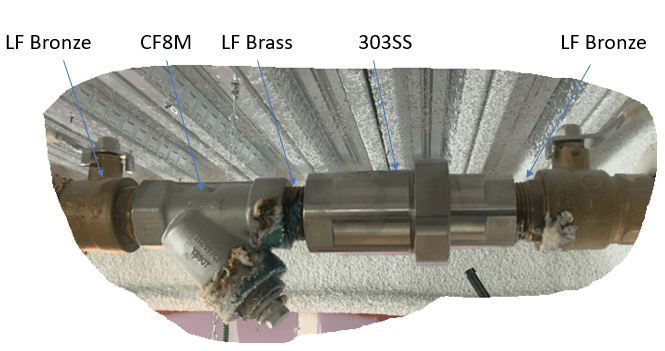If the ring and spring are working stick with them as is, but at least you know to keep an eye on them now.
Yes, if you ever saw issues with the ring going to 1050F ( at bit softer) would be a big help.
There aren't a lot of good spring options. As long as you are in Cu alloy bodies I would expect the galvanic difference to protect the 302 spring.
If you wanted to look at changes to the 303, there are a couple that I can suggest.
There are some 304 grades with enhanced machining that have reasonable corrosion resistance, the Outokumpu Prodec comes to mind as one. The other option is to look at lean duplex stainless steels (2101, 2202, and so on). Even though they are a lot stronger the dual phase structure actually makes them machine very well, for a stainless.
= = = = = = = = = = = = = = = = = = = =
P.E. Metallurgy, consulting work welcomed


